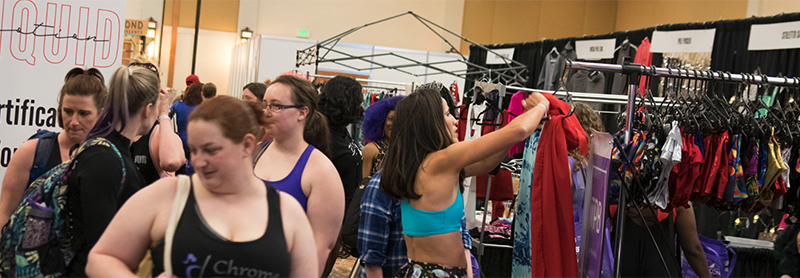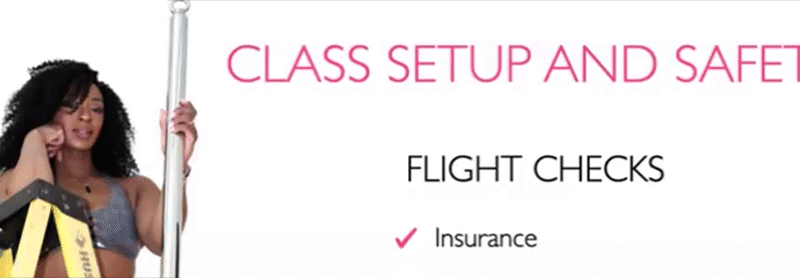A train-cation is a trip (usually away from home) where you focus for a specific…

What Healthcare Professional Should I See for my Pole Injury?
Pole injuries do occur. Perhaps you came down from the pole and landed wrong on your ankle. Or maybe that nagging pain in your shoulder has finally started to affect your pole moves. If you have sustained a pole injury and have felt unsure about which healthcare professional to consult, you are not alone. And we often get conflicting information from our peers. For example, your instructor tells you to visit a chiropractor, but your good friend tells you to go to the doctor.
Navigating healthcare can be confusing, so these are a few tips to help you determine which healthcare professional is best for you and your pole injury.
Types of Healthcare Providers
The following are descriptions of the different types of healthcare providers that you may consult for non-emergent pole injuries. Please note that these descriptions are based on the U.S. healthcare system. While most of these descriptions are also applicable to healthcare professionals in other countries, there may be slight differences in job titles or means of accessing.
Medical Doctors
- Primary Care Doctors. Depending on your health insurance, this may be the first healthcare provider you visit. While the primary care doctor will be very helpful in general medical illnesses or conditions, it is important that they refer you to a proper sports medicine or orthopedic specialist for further consultation.
- Primary Care Sports Medicine Doctors. This is the title for primary care doctors that have specialized in sports medicine. Many have an additional year of fellowship training to gain the sports medicine specialty. Look for primary care sports medicine doctors that further specialize in dance medicine!
- Orthopedic Doctors/Surgeons. You will be referred to an orthopedic surgeon if your injury might require surgery. Most orthopedic surgeries are considered elective (i.e., your choice), and it is a big decision to have surgery! If any of your pole friends have had surgery, ask which orthopedic surgeon they worked with and if they felt comfortable with the care they received. If you are unsure or not ready to get surgery, it is reasonable and very common to get opinions from 2-3 orthopedic surgeons.
Doctors of Chiropractic (i.e., Chiropractors)
While most chiropractors focus on alignment of joints of the spine, they are also specialized in treating musculoskeletal conditions and injuries. The best chiropractors incorporate therapies and exercises to complement the adjustments they perform. Researching chiropractors and reading reviews should help you find this info. It is recommended to consult with a medical doctor prior to seeing a chiropractor.
Physical Therapists
Physical therapists are healthcare providers specialized in rehabilitation. They are also trained in therapeutic modalities (electrical stimulation, manual therapy, etc.) that help you recover from injuries. They can prescribe home exercise programs and movement modifications to prevent further injuries. Some U.S. states allow direct access to physical therapists, while other states require referrals from medical doctors. ACRO PT, a physical therapist that specializes in servicing pole and other aerialists and one of our partners, offers discounts on their ACRO2GO program to IPIA members which provides home exercise programs supporting prehab and other educational resources.
Athletic Trainers
This healthcare professional may be the first person to evaluate your injury. They are most often found on the sidelines or backstage of events but can also be found in medical or physical therapy clinics. Athletic trainers work closely with medical doctors to respond to emergencies, treat injuries, and determine readiness to return to play. Athletic trainers (and/or physical therapists) are often referred to as ‘physiotherapists’ in other countries.
Other Professionals
There are many other professionals that may assist with pole-related injuries. While certainly not an all encompassing list, these could include massage therapists, acupuncturists, and personal trainers. While these professionals are trained and specialized in their respective fields, keep in mind that they are not qualified to diagnose injuries or give medical clearance to return to activity.
The Importance of Disclosing Pole-Related Information in Your Consultation
It is so important to disclose to your healthcare provider your pole dance activities and mechanism of your pole injuries. It can sometimes feel scary to disclose that information, as we are all well aware of the stigma associated with pole dancing. But I guarantee that you are doing a disservice to yourself and your body if you are not straight forward with your healthcare providers. Telling them how your pole injury occurred will help them create treatment recommendations tailored to your pole dancing. Keep in mind that your healthcare provider is required by law to keep your conversations and medical care private.



